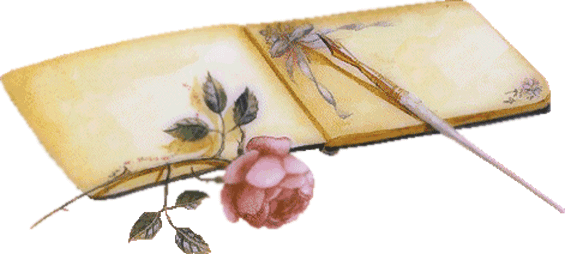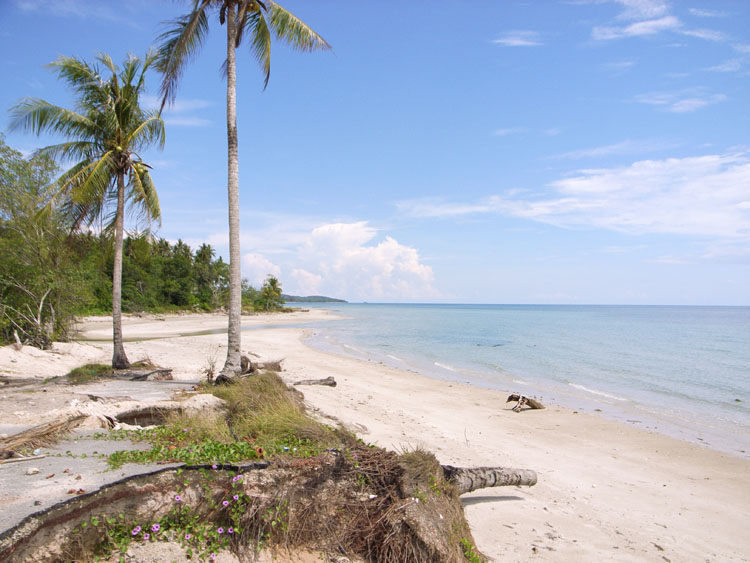



 (0 stemmer)
(0 stemmer) Noen som vet om dette er lov? Inbiler meg at jeg har hørt at man ikke kan ta med mat inn i USA... Har sendt en mail til ambassaden for å høre, men tenkte jeg skulle høre her om noen visste noe mens jeg venter.
Grunnen til at jeg spør, er at vi skal på bryllupsreise i sommer. Flyr til Miami, 7 dagers cruise i karibien, og flyr hjem til Norge. Pga mine allergier (gluten, melkeprodukter, frukt) får jeg ikke mat på flyene (ihvertfall ikke hos SAS og BA, kommer ikke frem på telefon til United eller icelandair), og jeg ønsker derfor å ta med mat selv.
nei, det er ikke lov.
Min bror reiste nylig til USA og de fikk ikke lov å ta verken kaker, kjeks, brus, pålegg eller noe som helst annet som er spiselig.
Kun det som ble kjøpt på flyet fikk de ta med seg inn i landet.
Beklager 🙁
Hvorvidt det er egne regler vet jeg ikke når det gjelder allergi. Vi var på cruise i middelhavet for litt siden ( :nååh: ) og der kunne du fremlegge legeattest en stund før cruiset på at du må ha med egen mat. For du får ikke ha med deg inn mat på cruiset. Dvs du kan få det med inn på cruiset, men det blir konfiskert og du får det når dere forlater cruiset ved turens slutt.
Jeg ville hørt med rederiet i tillegg til ambasaden hvis jeg var deg. For det hjelper ikke å få lov å ta mat inn i USA hvis du ikke får ta det med inn på båten. :whops:
Hos SAS skal det jo være mulig å få til å få glutenfri mat, man kan hvertfall få det på innland.
Må oppgi det når du bestiller billettene mener jeg, jeg har hvertfall fått allergimat med SAS, både på innlad og til utland.
Om det er trøblete å komme igjennom anbefaler jeg å prøve på facebook sidene til flyselskapene, de bruker å svare er min erfaring. Når jeg spurte om noe ( vil ikke legge ut det her hva det gjaldt) da fikk jeg svar fra en av de på pm på face. Verdt et forsøk tenker jeg?
Men mat inn i USA er ikke lov.
21:28
24. januar 2010
 Offline
OfflineJoda, det er faktisk lov, det er faktisk feil at det ikke er lov til å ta med mat inn i USA. Det du derimot må gjøre er at du må fylle ut det skjemaet som du får på flyet, og så må du gå gjennom for å klarere varene. Kjenner flere som har tatt med mat uten problemer. Det som dog ikke er lov er kjøtt, mest fordi de er redd for sykdommer.
Som det står på myndighetenes sider:
Can I bring in food as a traveler (fruit, cheese, meat, etc.)?
The information contained in this answer does not apply to food being sent to the U.S. through the mail, courier services or other means.
This information only covers food (fruit, cheese, meat, etc.) entering the United States in passenger baggage for personal use.
See the question "How do I import food (canned goods, meat, vegetables, fruits, bulk food, etc.) for resale?" for information on importing food for resale.
You may be able to bring in food such as fruits, meats or other agricultural products depending on the region or country from which you are traveling. Restrictions are placed on these products to protect community health, preserve the environment and prevent the introduction of devastating diseases to domestic plants and animals.
Failure to declare food products can result in up to $10,000 in fines and penalties.
The following are generally admissible:
-Condiments such as ketchup (catsup), mustard, mayonnaise and prepared sauces that do not contain meat products
-Olive oil and other vegetable oils
-Bread, cookies, crackers, cakes, granola bars, cereal and other baked and processed products
-Candy and chocolate
-Cheese- Solid cheese (hard or semi-soft, that does not contain meat); butter, butter oil, and cultured milk products such as yogurt and sour cream are not restricted. Feta cheese, Brie, Camembert, cheese in brine, Mozzarella and Buffalo Mozzarella are permissible (USDA Animal Product Manual, Table 3-14-6). Cheese in liquid (such as cottage cheese or ricotta cheese) and cheese that pours like heavy cream are not admissible from countries affected by foot-and-mouth disease (FMD). Cheese containing meat is not admissible depending on the country of origin.
-Canned goods and goods in vacuum packed jars (other than those containing meat or poultry products) for your personal use
-Fish- personal amounts of fish, shrimp, abalone and other seafood are allowed and can be fresh, frozen, dried, smoked, canned or cooked
-Dried Fruit- things like apricots, barberry, currants, dates, figs, gooseberries, peaches, prunes, raisins, tomatillos, and zereshk (USDA Miscellaneous and Processed Products Manual, Table 3-69)
-Liquid milk and milk products intended for use by infants or very young children are admissible if in a reasonable amount or small quantity for several days' use
-Powder drinks sealed in original containers with ingredients listed in English. However, admissibility is still under the discretion of the Customs and Border Protection (CBP) Agricultural Specialist.
-Juices- commercially canned (USDA Miscellaneous and Processed Products Manual, Table 3-75)
-Tea- commercially packaged and ready to be boiled, steeped or microwaved in liquid. Coca, barberry and loose citrus leaves are prohibited (USDA Miscellaneous and Processed Products Manual, Table 3-148)
-Coffee- roasted or unroasted if there is no pulp attached. (USDA Miscellaneous and Processed Products Manual, Table 3-48)
-Spices- most dried spices are allowed except for orange, lemon, lime and other citrus leaves and seeds, lemongrass, and many vegetable and fruit seeds
-Honey- comb honey, royal jelly, bee bread, or propolis if it is not intended to be fed to bees (USDA Miscellaneous and Processed Products Manual, Table 3-100)
-Noodles and ramen that do not have meat or eggs in the spice packets
-Rice- (See ALERT below) white rice, basmati rice, brown rice, husked rice, polished rice, rice flour and other products that do not have the hull attached (USDA Miscellaneous and Processed Products Manual, Table 3-130).
ALERT: Effective July 30, 2011 non-commercial quantities of rice from countries where Khapra beetle is known to occur will be prohibited from entering the United States. Failure to declare rice will result in fines.
-Flour- wheat, rice, oat and cornmeal
-Mushrooms, fresh and dried- above ground parts that are clean and free of soil
-Nuts- All nuts are allowed if they have been boiled, cooked, ground, oven dried, pureed, roasted, or steamed. Other nuts may be allowed if they are free from their husks (the shell remains), such as almonds, betel nuts, Brazil nuts, cashews, coquilla nuts, filberts (hazelnuts), Java olives, kara nuts, gingko nuts, macadamias, pecans, pili nuts, pine nuts (pinon nuts), pistachios, and walnuts. (USDA Miscellaneous and Processed Products Manual, Table 3-105, 3-106)
-Bakery items, candy, chocolate, and dry mixes containing dairy and egg ingredients [such as baking mixes, cocoa mixes, drink mixes, instant cake mixes, instant pudding mixes, liquid drink mixes containing reconstituted dry milk or dry milk products (including those that contain sugar), potato flakes, and infant formula] commercially labeled and presented in final finished packaging are generally admissible.
Fruits and Vegetables:
Travelers may check the general admissibility of fruits and vegetables by consulting APHIS's FAVIR database. Simply select the type of fruit or vegetable in the "Approved Name:", and then select the country of origin in the "Country/Region:" field. You will receive one of the following results:
· 0 entries found means the fruit or vegetable is NOT allowed into the United States
· # entry(ies) found [followed by the name of the commodity and the name of the country] click on "CIR".
If the import requirements indicate: 1 Subject to Inspection: This commodity is subject to inspection at the port of entry and all general requirements of 7 CFR 319.56-3. The fruit or vegetable is allowed into the United States pending Inspection.
If the import requirements indicate: Condition of entry treatment then the fruit or vegetable is NOT allowed into the United States in passenger baggage.
Every fruit or vegetable must be declared to a CBP Agriculture Specialist or CBP Officer and must be presented for inspection - regardless of its admissibility status. Fresh fruits and vegetables need to be clean and may be prohibited if they have insects or diseases.Note: See FDA Web site Food products imported from Japan and radiation safety.
The following items are admissible:
Aloe- above ground parts
Coconuts-husks must have been completely removed and cannot have sprouted
Garlic- peeled cloves
Ginger- clean roots
St. John's bread- pod
Tamarind bean pod
Water chestnut- corm or nut only
Animal Products and Animal By-Products:Meat, milk, egg, poultry, and their products, including products made with these materials, such as dried soup mix or bouillon, are either prohibited or restricted from entering the United States, depending on the types of animal diseases which occur in the country of origin. Fresh (chilled or frozen), dried, cured, and fully cooked meat is generally prohibited from most countries. Canned meat is allowed entry, except beef, veal, lamb, mutton, venison, elk, bison, etc., from countries affected by bovine spongiform encephalopathy (BSE).
Products containing raw egg ingredients are prohibited from most regions.
Eggs and egg products from Exotic Newcastle Disease (END) and Highly Pathogenic Avian Influenza (HPAI) affected regions, including cooked eggs, if not accompanied by a USDA Veterinary Service import permit remain prohibited regardless if those items are for personal consumption. Effective February 15, 2012, travelers may once again bring fully cooked eggs from Mexico into the U.S.
Pork should be commercially canned and labeled in unopened containers. Pork and pork products are not admissible from Mexico, except for cooked pork in small amounts for a meal.
Effective January 14, 2010, cooked pork skins (also known as pork rind) entering as commercial cargo or in passenger baggage from regions affected with foot-and-mouth disease (FMD), swine vesicular disease (SVD), African swine fever (ASF), or classical swine fever (CSF) must be accompanied by an original certificate issued by an official of the National Government of the region of origin.
Canadian Agricultural Products:
For fruits and vegetables from Canada, consult the FAVIR database.
Fruits and vegetables grown in Canada are generally admissible, if they have labels identifying them as products of Canada. Fruits and vegetables merely purchased in Canada are not necessarily admissible, i.e. citrus or tropical fruits such as mangos, which clearly were not grown in Canada because it does not have a climate that supports those crops. (Potatoes from western regions of Canada are currently restricted because of a disease outbreak. While commercial imports are permitted under stringent guidelines, travelers from Canada should avoid bringing raw potatoes with them into the U.S.).
Food products from Canada, including pet food and fresh (frozen or chilled), cooked, canned or otherwise processed products containing beef, veal, bison, and cervid (e.g. deer, elk, moose, caribou etc.) are now permitted from Canada in passenger baggage. Products containing sheep, lamb, or goat will not be allowed entry.
The passenger must provide proof of the origin of beef, pork, poultry, cervid meat, and pet food in order to bring them into the United States. Examples of proof of origin include the grocery store receipt where the product was purchased or the label on the product indicating the province in which it was packaged.
Hunter harvested game birds (pheasant, quail, goose, etc.) or cervid carcasses (e.g. deer, moose, elk, caribou, etc.) from Canada are allowed entry when importers present to the Customs and Border Protection officer evidence such as a hunting license that the product is hunter harvested wild game. Hunter-harvested wild non-cervid animal (e.g. wild sheep, goats, or bison/buffalo, etc.) meat or carcasses, which must be eviscerated and head removed, are allowed when the hunter shows to CBP officers a hunting license, tag, or equivalent.
Mexican Eggs/Poultry:
The regulations regarding bringing cooked poultry-such as chicken and turkey-meat, including deli-sliced poultry meat, and cooked hard-boiled eggs into the U.S. from Mexico have changed. The U.S. Department of Agriculture Animal and Plant Health Inspection Service informed CBP that APHIS is implementing new requirements for processed (including cooked) poultry meat and cooked, hard-boiled eggs brought by passengers arriving from regions where APHIS considers Exotic Newcastle Disease (END) to exist. Currently, Mexico is a country recognized by APHIS as being affected by END.
According to the new requirements, processed poultry meat brought by passengers arriving from Mexico or from any region classified by the USDA as affected with END or HPAI must be accompanied by government certification confirming that the meat was cooked to a minimum internal temperature of 74 degrees centigrade. This requirement is for all poultry meat (excluding canned, hermetically sealed, shelf stable meat), poultry meat products, and poultry products. There is no exception for cooked eggs from the Mexican states of Sinaloa and Sonora.
Certification of poultry having been cooked at a temperature of at least 74 degrees centigrade does not apply to poultry meat products intended for personal consumption (poultry meat and meat products in passenger baggage or carry-on, personal meals). For movement into the U.S., CBP officials must still visually inspect these items to certify that poultry meat and poultry products in checked or carry-on passenger baggage or in meals, from END or HPAI affected regions, for personal consumption appear thoroughly cooked throughout. Amounts greater than 50 pounds found in passenger baggage are considered commercial and will require a USDA APHIS Veterinary Services certificate as part of the entry packet.
Further Information:
APHIS has posted country/regional fact sheets on agricultural items that can or cannot be bought into the U.S. For Mexico, Canada, Hawaii and Puerto Rico fact sheets visit APHIS/USDA website. See "Region Specific Information" on the right side of the page. More counties will be added in the future.
Other than the above general guidelines, it is impossible to advise you in this forum about the admissibility of specific food items because it is so susceptible to change. Disease and pest outbreaks which impact the admissibility status of fresh and packaged food items may occur all over the world at any time.
The USDA establishes criteria for the admissibility of plant, dairy, meat and other animal products returning with travelers and they make the determination for what may be admitted into the U.S. For more detailed information, visit the USDA Animal and Plant Health Inspection Service (APHIS) Web site. If you have any questions, or require further information related to imports of specific animal products or by-products, please contact National Center for Import and Export at AskNCIE.Products@aphis.usda.gov.
All commercial and personal imports of products from endangered species and other wildlife are subject to FWS permit requirements. For more information, please call the FWS at (703) 358-2093.
CBP Agricultural Inspectors are stationed at ports of entry and along our land and sea borders. Because of the complexities of regulations governing the importation of food they may need to contact specific agencies for information about what is or is not admissible. If no expert is available, food may be detained in the interest of preventing possible outbreak of foreign diseases in the U.S.
På den amerikanske ambassadens sider skriver de også:
We often get questions about what types of food are allowed past US Customs. These rules are decided by the US Customs and Border Protection, (often in cooperation with the US Department of Agriculture.)
As a general rule, fish is usually allowed in most forms (raw, smoked, cured, frozen, haphazardly packed, vacuum packed, etc). Soft cheeses such as brie and camembert are not allowed, but hard cheeses such as brown goat cheese (brunost) are. Currently, meat from Norway is not allowed in any form, and all fruits and vegetables must be declared and are most likely not allowed. Chocolate and other candies are allowed.
Please consult http://www.cbp.gov to be completely sure!
Veldig merklig at reisefølget til min bror ikke fikk lov å ta med seg noe selv om de spurte om de kunne deklarere varene.
"Sweet Pink Kitty" wrote: Men fylte de ut skjemaet de fikk på flyet da?
Ei venninne av meg tok med seg masse mat på flyet hun og fikk det gjennom tollen i USA når hun reiste for en måned siden (hun er norsk og var på ferie der borte).
De ringte på forhånd for å være sikre. Hadde jo vært kjipt å stått der borte og alt bli konfiskert og følt seg ganske dum, selv med papirer.
Og de fikk beskjed om at det ikke bare var å fylle ut papirene, de fikk likevel ikke lov. Og det var ikke snakk om kjøtt heller. 
Det er derfor jeg skrev til HI at hun burde sjekke det opp både med å ta med ting inn i landet PLUSS sjekke opp med rederiet om hun får ta med seg mat ombord på cruiset. For sistnevnte vet jeg av egen erfaring de er kjempestrenge med.
Tusen takk for svar alle sammen! Venter på svar fra ambasaden, så skal vi nok finne en løsning.
Vet at man kan få glutenfri mat på de fleste fly, og også melkefri mat, problemet oppstår når man må ha både gluten og melkefri mat (kunne få frukt på hos et selskap, men er svært lite frukt jeg tåler, så da funker ikke det heller). Ting hadde vært veldig mye greier dersom man bare har en allergi...
Høyest antall samtidige brukere på forumet var 475
Pålogget nå:
19 Gjest(er)
Hvem er på denne siden nå:
1 Gjest(er)
Toppliste innlegg:
Stavangerpar: 14664
eriksson: 7598
vanilla81: 4232
lindakbj: 4020
sizza87: 3278
Katrine: 3155
Jannicke: 2914
Medlemsstatistikk
Gjester: 2
Medlemmer: 9151
Moderatorer: 2
Administratorer: 2
Forumstatistikk
Grupper: 5
Forumer: 36
Emner: 11394
Innlegg: 176083
Nyeste medlemmer:
gurooo, Guro, tuvavb, Ellikapstad, IneThereseModeratorer: Trone: 20970, Stian og Gitte: 7804
Administratorer: Bryllupsvenner: 49, Roger: 4193
Innlegg med flest stjerner
Skriv interessante innlegg for de som planlegger bryllup, da vil du kanskje se ditt innlegg i listen over!

 Logg inn
Logg inn Registrér deg
Registrér deg Bryllupsforum
Bryllupsforum









 Bryllupsplanlegger
Bryllupsplanlegger










![Praktiske-linker-til-kirkelig-bryllup[1]](http://www.bryllupsvenner.no/wp-content/uploads/2010/12/Praktiske-linker-til-kirkelig-bryllup1.jpg)











Siste kommentarer